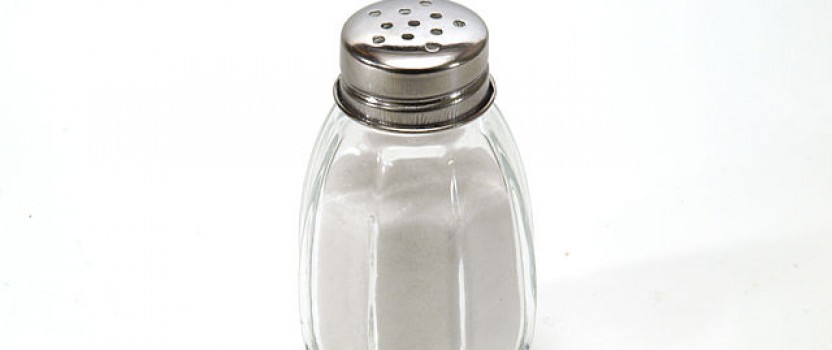The Connection Between Autoimmune Disorders and Salt
Most people have heard about the risks of a diet high in sodium. For years, a low-sodium diet has been recommended for those with high blood pressure. Now, a new wave of research coming out of Yale, Harvard and other leading research institutions is suggesting that a high-salt diet may worsen the symptoms of autoimmune diseases such as multiple sclerosis and rheumatoid arthritis.
Over the past 30 years, the prevalence of autoimmune disease has risen by between 5% and 7% a year. Although we are finding some genetic connections, these huge, year over year, increase can’t be explained by genetics alone. DNA just doesn’t mutate and evolve that rapidly. Over the years, everything from environmental toxins, smoking, and vitamin D deficiencies have been blamed, but none have individually and solely stood up to answer the question as to why so many cases of different autoimmune disease are being diagnosed.
Now, researchers are beginning to look at simple salt as a potential culprit. The logic is certainly irrefutable. The amount of salt in our diets has increased along with the amount of packaged foods we eat, and as a society, we are eating more and more pre-packaged foods every year. Autoimmune disorders are also far more prevalent in developed countries, perhaps not coincidentally where salt consumption is the highest.
Humans have been around for a few million years, and salt has always been a critical element to health. We need salt to function, but we don’t need anywhere near as much salt as we ingest. The FDA recommends no more than 2,300 mg of salt for otherwise healthy adults (the recommendations is lower for those with salt sensitive conditions), but the average American eats 3,000 mg of salt, and that number is unfortunately rising.
David Hafler, professor of neurology and immunobiology at Yale University was the first to identify the possible link between salt and autoimmune disorders. He was initially interested in how levels of intestinal bacteria might alter the course of autoimmune disease. In looking at the diets of his test subjects, he noticed that there was a strong correlation between the amount of fast food a subject ate, and the levels of inflammatory immune cells (known as TH17 cells) in the blood. After parsing the data, he identified the high levels of salt in fast food as a possible culprit.
Excited about the possibilities of this new insight, Hafler began a study on how salt affects rats who hve a rodent form of multiple sclerosis. The shocking results surprised even Dr. Hafler. Animals on a high-salt diet had TEN times more TH17 cells than those on a regular diet. More importantly, they got much sicker. Most of the animals on the high-salt regimen became paralyzed due to their disease, while those that ate less salt tended to remain much more mobile. Hafler then moved on to human immune cells, and found that exposing them to high levels of salt led to major increases in the inflammatory cells.
Hafler’s initial research was followed up by similar studies at Harvard Medical School and the Raúl Carrea Institute for Neurological Research in Argentina. Both institutions studied salt consumption among patients with multiple sclerosis. Just as Hafler had found with his rats, the human patients who ate a high salt diet were far more likely (four times more likely) to develop more serious symptoms than those who ate a low salt diet. As a scary side note, the high-salt group also had a threefold greater chance of developing new brain lesions related to the disease.
A Swedish study published soon after that of Hafler found a link between salt and rheumatoid arthritis, another condition that has confounded patients and their doctors for years.
Although researchers don’t understand the relationship between salt and autoimmune disorders, they believe the link is due to a gene known as SGK1, which plays an important role in how the body absorbs salt. The more salt you ingest, the more active SGK1 becomes. The more active SGK1 becomes, the more TH17 cells are released, leading to the immune system literally being “flooded” by inflammatory cells.
Not everyone who consumes a high sodium diet is at risk for autoimmune disease, but if a patient has a vulnerability to the disease, either due to genetics or other health factors that are wearing on the body, a high sodium diet can send the immune system into overdrive. It is the metaphor of the bucket at work. As we fill up our “buckets” with environmental stressors, lifestyle stressors, unhealthy diets, and genetic predispositions, at some point those buckets will overflow and we will become sick. Sometimes very sick.
Here at the Cellular Health Institute we work one-on-one with you to discover the root cause of your autoimmune disorder, and through nutrition and detoxification protocols, heal and strengthen your body at the cellular level so it can heal itself. We help you “empty your bucket” and keep it empty, so to speak.
If you have any questions about autoimmune disorders and how we might be able to help you, please contact us. We look forward to helping you find the path back to health!



